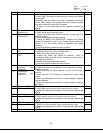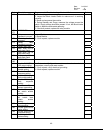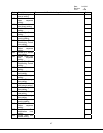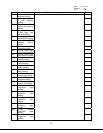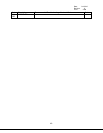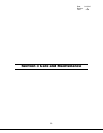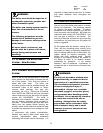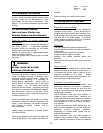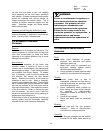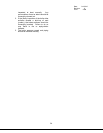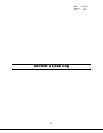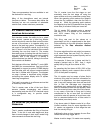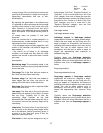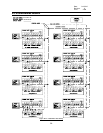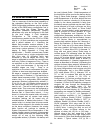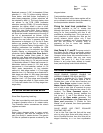
Date: 8-4-2010
Revision: 0
Form: 2396
not less than four times a year, and possibly
more frequently as the local water conditions
may indicate. All water introduced into the boiler
should be softened and should include an
oxygen scavenger like sodium sulfite. This is
required to remove dissolved oxygen from the
water. Dissolved oxygen will cause severe
boiler tube corrosion.
Draining and refilling the boiler & system
If the system is drained and then refilled,
chemical treatment is essential to treat the raw
water. Use only clean, softened water.
3.4 EXTERNAL “FIRE-SIDE”
CLEANING
Purpose
Carbon (soot) is an insulator and corrosive. The
heating surfaces of a boiler must be kept free
from soot accumulation to keep the boiler
operating at its highest efficiency and to avoid
damage from corrosion.
Soot removal
If the yearly inspection of the boiler tube
surfaces reveals a build-up of soot or rust
(usually due to condensation), the tubes should
be thoroughly brushed. (Tube cleaning brushes
are available from Bryan Steam) To inspect
and, if necessary, clean the tube surfaces and
flue collector, first remove the tube access
panels. Examine the exterior of the tubes for
evidence of soot or rust. Using a flashlight,
carefully look between the tubes. There should
be an unobstructed opening between all tubes,
and the top surfaces of the tube must be free
from soot accumulation. Also inspect the interior
of the flue collector. Brush or vacuum the soot
from all surfaces. Be sure to cover Triple-Flex
burner with a protective cover during cleaning to
prevent soot from falling onto it.
If the buildup of soot is appreciable, the flue gas
venting system must be thoroughly inspected
internally as well, and cleaned as necessary.
WARNING:
If soot or condensation is apparent, a
boiler service technician should be
consulted. The presence of soot
indicates poor combustion and
possibly hazardous boiler operation.
Failure to do so may result in fire,
explosion potential, or asphyxiation. A
combustion test and burner
adjustments should be undertaken at
once.
3.5 SUGGESTED MAINTENANCE
SCHEDULE
Daily
1. Make visual inspection of gauges,
monitors, and indicators and record
readings in boiler log.
2. Make visual check of instrument and
equipment settings against factory
recommended specifications.
3. Check operation of probe type low water
cutoff(s) to ensure control is functioning.
Weekly
1. Confirm boiler area is free of
combustible materials and that there is
nothing obstructing air openings, draft
hood relief openings, etc.
2. Check combustion safety controls for
flame failure and flame signal strength
as specified in manufacturer's
instructions located at the back of this
manual.
3. Check all limit controls.
4. Check low water cutoff as described
above.
Monthly
1. Check high and low gas pressure
interlocks. Refer to manufacturer's
instructions for correct procedure.
Annually
53
1. The flue gas passages and the exterior
surfaces of the boiler tubes should be



